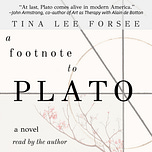Excerpt from Chapter 10
What on earth made him open that attachment? It was the sort of cringe-worthy misdeed one expects of children, puppies, criminals with a low I.Q. What was he to do?
Destroy the video. Yes, he could see it, his laptop falling from the balcony in slow motion, fragmenting on the sidewalk below. It slipped out of his grip, or so he would tell everyone, flipped like a coin over the edge of the railing and plummeted to its death—but then he remembered what Zeb had explained to him, that email doesn’t really live inside the computer, but “on the internet.” What happens on the internet stays on the internet. Which meant he could smash his computer to smithereens, but that abominable video would go on living the life of a Platonic idea.
None of this mattered, of course. Even if he could make the video disappear, there was no way to un-see what he saw. He knew that if the committee were to interrogate him, he’d have to explain why he opened the attachment. The truth was, he knew why he’d opened the attachment. He’d believed it contained a secretly recorded investigation meeting—which he knew he had no right to hear, of course—but was shocked to find a sex video instead, presumably one made by his own students. Did he watch it? the committee would ask. What could he say in reply? That he’d turned away as soon as he caught a glimpse of Alexandra unbuttoning her blouse? The truth was his only defense, but it was no defense at all. Who would believe it? He could hope and pray the committee wouldn’t find out, but that wasn’t the way these things went. He had half a mind to call the college now and tell them everything, whatever the repercussions. Just get it over with.
On the other hand, he wondered why Uri had sent him that video, if there had been malicious intent. This possibility sat in the back of Isaac’s mind, but he had to admit, despite everything, that Uri’s admiration for Kantian ethics—good intentions are all that matter, consequences don’t—was too enthusiastic not to be genuine. Could Uri have just sent the wrong file by mistake? In the virtual world, it was easy to make mistakes, irrevocable mistakes. All it took was a careless tap of a finger. But who knew. It was all too much to take.
Just then the Parthenon lit up. Luckily, he happened to be looking towards the Acropolis when it happened, but it wasn’t the spectacle he’d hoped for. The barest tinge of cobalt still clung to the sky, just enough light pollution to ruin the show. He pictured Socrates loitering on the steps of the Propylaea, hunched over a laptop, pecking at his keyboard with two knobby, old-man fingers while he tried to figure out how to upload selfies to Cloud-Cuckoo-Land.
Of course, the real Socrates understood the dangers lurking behind permanence. He wouldn’t have touched our technology with a ten-foot pole. In fact, he didn’t even trust writing things down. As Plato explains it in the Phaedrus, once an idea is turned into external markings and placed in the visible world for all to see, the words themselves can’t clear up misunderstandings or answer questions. Unlike the living, breathing word, the written word can’t defend itself. It can only go on repeating the same thing forever.
The text format you’ve been reading is a sample of what’s available to paid subscribers in a separate email called “FOOTNOTES”. Want access? Scroll down for discount button—20 bucks will get you a full year’s subscription to this book and my husband’s philosophy book, Truth and Generosity: How Truth Makes Language Possible.
The audiobook (podcast) for this entire novel will continue to be free. Or you can buy my book on Amazon.
FREE SUBSCRIPTION includes:
FULL NOVEL PODCAST. So go ahead and start downloading episodes—you won’t get paywalled in the future.
BOOK CLUB QUESTIONS at the end.
I hope you enjoy it so much you’ll take note of the next book I write and maybe even leave a review for this one once you’re done. You can show your appreciation with a tip or upgrade to a:
PAID SUBSCRIPTION, which includes the above and:
FOOTNOTES: a behind the book look + what I’ve learned.
BONUS CHAPTER (or two or three) that have never seen the light of day.
STORY ARC: my adaptation of the Hero’s Journey for literary fiction.
COMPLETE AUDIOBOOK DOWNLOAD to listen on Spotify, great for road trips.
MY WARMEST THANKS!
Thanks for listening!
—Tina
Set up your podcast app to start downloading.
Previously on “A Footnote to Plato”…
Isaac wasn’t as bitter about his situation as some part of him thought he should be. As he climbed up the hillside of the Acropolis amidst a thick procession of tourists, he sensed a clarity, a definition, to the afternoon… The show must go on, for he had a crucial role to play. This could be his final opportunity to leave a mark.
In Chapter 8, Athens Greece, a small group from Winston College arrives in Athens late at night and it’s not what they expected.
In Chapter 9, The Parthenon, Zeb’s awe and appreciation for being given the opportunity to visit Greece are overshadowed by his recent memories and feelings of guilt concerning his grandmother in memory care. Dr. Fischelson tries to come to grips with the investigation from afar and suspects he has a spy in his midst.















Share this post